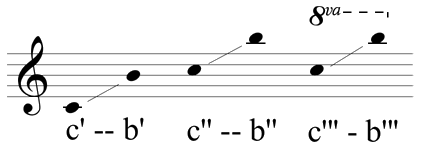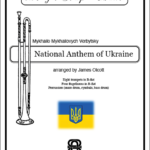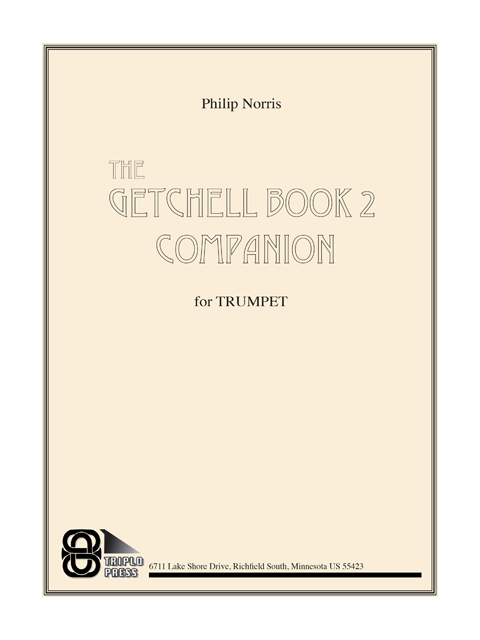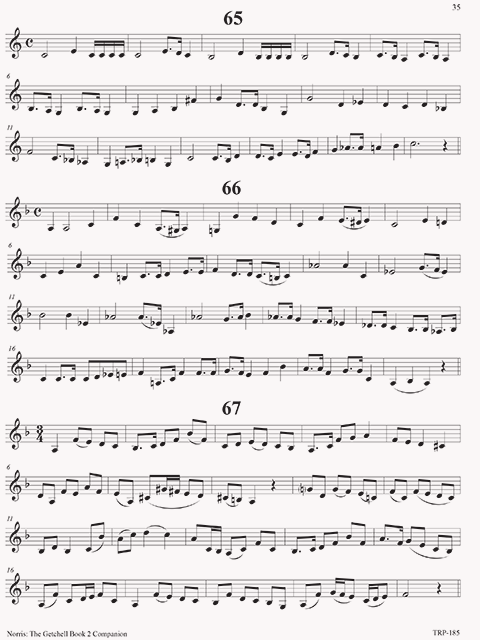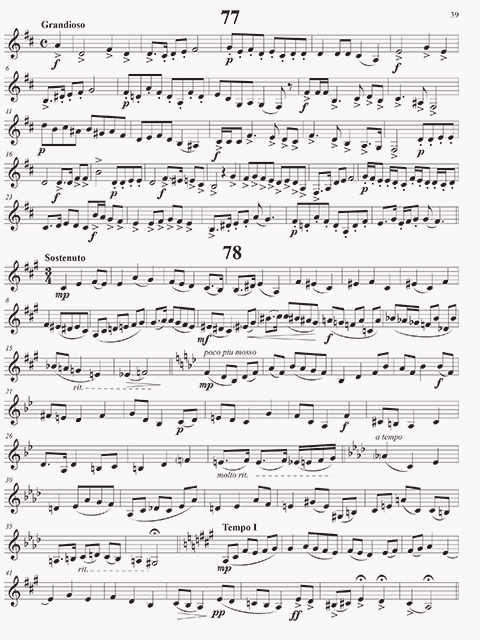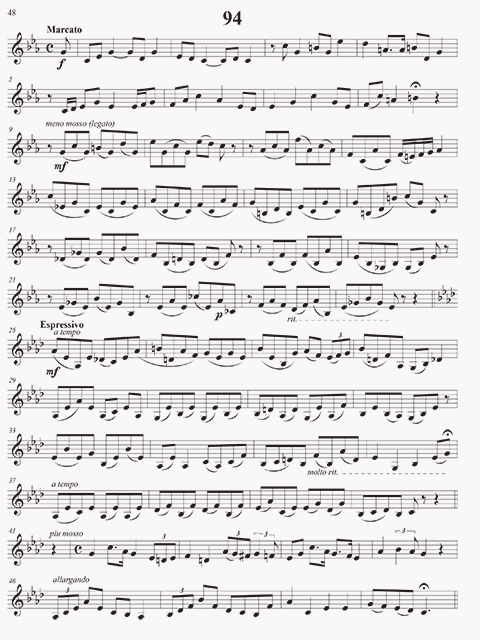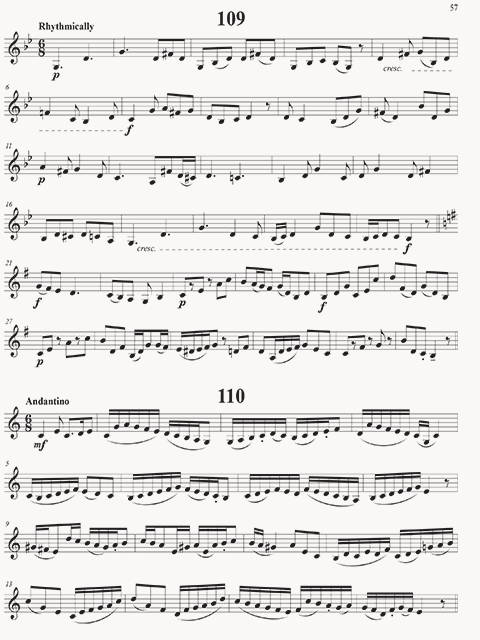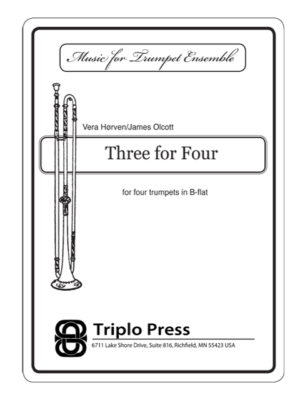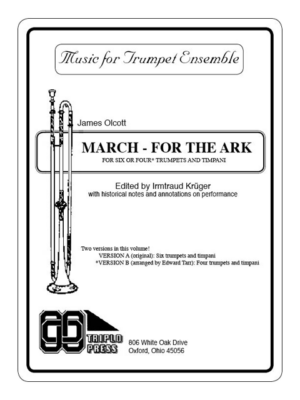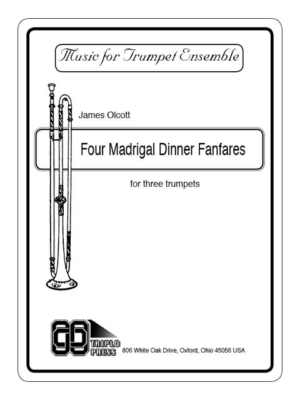$11.90 – $14.00
The Getchell Book Two Companion
 The GETCHELL BOOK TWO COMPANION, essentially second (duet) parts to the Second Book of Practical Studies for Cornet and Trumpet by Robert Getchell (difficulty grades of 2 to 4), follows the principles found in Triplo Press's COMPANION SERIES, that being the concept of playing with students to help with conceptions of sound, style, pitch, tempo, and phrase. These 57 etudes (the numbering begins with Etude 65, jumping in where Book One finished) are fun and satisfying in their own rights and can be played and studied as stand-alone works. They are most effective, however, when played as conceived: as duets to Mr. Getchell's book, which is published by Belwin. The sample recordings include studies no. 81, 86, 97, 103, and 111.
The GETCHELL BOOK ONE COMPANION can be found by clicking here.
The GETCHELL BOOK TWO COMPANION, essentially second (duet) parts to the Second Book of Practical Studies for Cornet and Trumpet by Robert Getchell (difficulty grades of 2 to 4), follows the principles found in Triplo Press's COMPANION SERIES, that being the concept of playing with students to help with conceptions of sound, style, pitch, tempo, and phrase. These 57 etudes (the numbering begins with Etude 65, jumping in where Book One finished) are fun and satisfying in their own rights and can be played and studied as stand-alone works. They are most effective, however, when played as conceived: as duets to Mr. Getchell's book, which is published by Belwin. The sample recordings include studies no. 81, 86, 97, 103, and 111.
The GETCHELL BOOK ONE COMPANION can be found by clicking here.
ITG Journal, January 2020, page 89:"...a worthwhile addition to the literature and a welcome enhancement to the already pragmatic and attainable Getchell etudes...also offer(s) a useful entryway to transposition studies, multiple-tonguing variations, and piccolo trumpet practice."
Audio Sample
PDF version: $11.90
Printed version: $14.00
